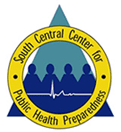Nuclear Power Plant Safety and the Public Health Response

Course Description:Japan’s Dai-ichi nuclear power plant crisis in 2011 impacted countries thousands of miles away. The crisis shed light on several issues including protective action measures and population monitoring.
Category
- Behavioral Health
Format
- Self-study / Enduring
Credits
- 2.00 Participation/CE
Cost $0.00
Successful Strategies for Integration of Immunization and Emergency Preparedness Programs in Planning and Practice

Course Description:This broadcast will convene a panel of subject matter experts from both immunization and emergency preparedness programs to address national policy recommendations developed by the Association of Immunization Managers (AIM).
Category
- Behavioral Health
Format
- Self-study / Enduring
Credits
- 2.00 Participation/CE
Cost $0.00
A Multi-state, Multi-organizational Solution to Limited Regional Pediatric Medical Surge Capacity in the Southeastern United States

Course Description:A lack of pediatric surge capacity is particularly acute in the Southeastern United States because of the relatively low number of pediatric facilities and limited health resources.
Category
- Behavioral Health
Format
- Self-study / Enduring
Credits
- 2.00 Participation/CE
Cost $0.00
Utilizing Government Resources in a Disaster

Course Description:The expectation in emergencies is that all citizens affected in the disaster area receive prompt appropriate care.
Category
- Behavioral Health
Format
- Self-study / Enduring
Credits
- 2.00 Participation/CE
Cost $0.00
Staffing for Emergency Response and Recovery

Course Description:In recent years, attention and resources have focused on emergency preparedness plans, systems and training.
Category
- Behavioral Health
Format
- Self-study / Enduring
Credits
- 2.00 Participation/CE
Cost $0.00
Needs of Our Children: Pediatric Care Before, During and After Disasters

Course Description:The expectation during emergencies is that the care provided for adults is also appropriate for children. However, children have unique healthcare needs. In 2004, more than 25 percent (approximately 73 million) of the total U.S.
Category
- Behavioral Health
Format
- Self-study / Enduring
Credits
- 2.00 Participation/CE
Cost $0.00
Addressing Disaster and Emergency Stress Beyond First Responders: Implications for Individuals, Families, and the Workplace

Course Description:After the recent series of deadly hurricanes, few people need to be convinced that the stressors of responding to and recovering from these events are overwhelming.
Category
- Behavioral Health
Format
- Self-study / Enduring
Credits
- 2.00 Participation/CE
Cost $0.00
Supporting Children in Times of Crisis

Course Description:In times of crisis, children are often the most vulnerable. Whether they are personally affected or exposed to traumatic circumstances through the media, it is important to protect children’s emotional well-being as much as their physical safety. Thi
Category
- Behavioral Health
Format
- Self-study / Enduring
Credits
- 2.00 Participation/CE
Cost $0.00
Evidence-Based Approaches for Post-Disaster Mental Health Disorders

Course Description:In considering the needs for effective disaster preparedness and response, one area that has often been given less attention is the mental health implications of such events. This course discusses common post-disaster mental health problems such as ac
Category
- Behavioral Health
Format
- Self-study / Enduring
Credits
- 2.00 Participation/CE
Cost $0.00
Establishing Closed PODs: An Overview of Recruitment, Training and Operational Matters

Course Description:During a public health emergency that requires medical prophylaxis for a significant number of residents within 48-hours, it is essential to recruit private entities to serve its own employees and employees’ family members.
Category
- Behavioral Health
Format
- Self-study / Enduring
Credits
- 2.00 Participation/CE
Cost $0.00

 Facebook
Facebook Twitter
Twitter LinkedIn
LinkedIn Forward
Forward